Record-breaking number of graduates face bleak job market in China
With another record year for the number of graduates in China, Lianhe Zaobao correspondent Wong Siew Fong notes that the employment situation appears bleaker than ever. Those seeking to join the civil service are facing even tougher competition as government agencies cut down on hiring, while the private sector may not be the most attractive option for them.
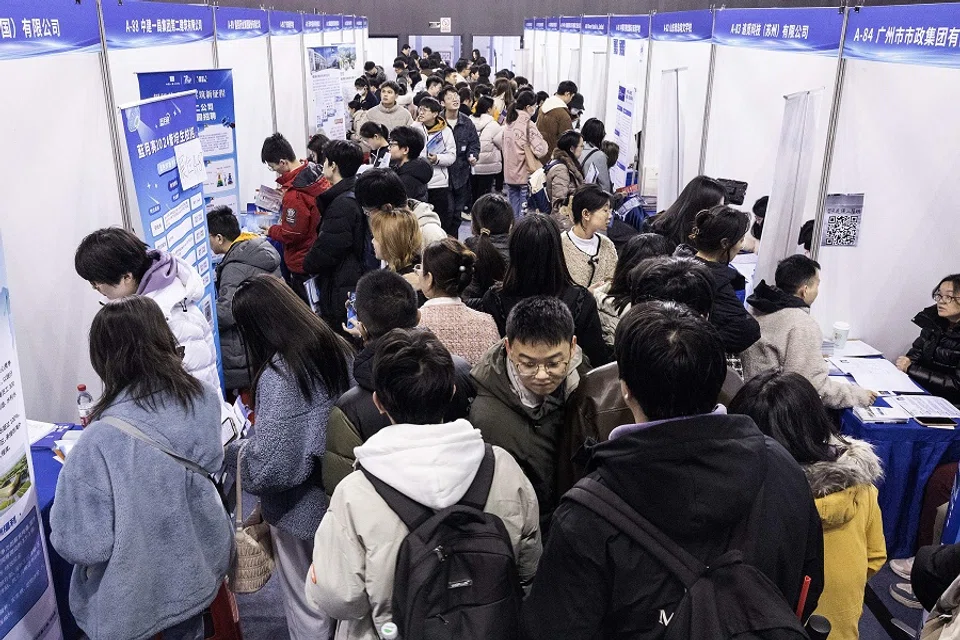
College graduation season is more than two months away, but many colleges in China have already begun to encourage graduands to actively seek employment and not focus only on applying for graduate studies or the civil service.
Supply and demand mismatched
China's graduate employment issue has consistently been a hot topic of discussion over the past four years, especially nearing the mid-year during the graduation season. All relevant reports on the matter would draw close attention, and calls issued by various colleges in the past two months have likewise stoked discussions from netizens.
In February, the employment and entrepreneurship guidance centre for college students at Zhejiang Sci-tech University issued an open letter imploring graduates to not only focus on civil service and public institutions examinations upon graduation, and instead proactively answer the nation's call in service of the national strategy, and apply for employment at micro-, small- and medium-sized enterprises or to seek employment at the grassroots level.
Civil service examinations refer to the examinations taken to become a civil servant, while public institution examinations would refer to recruitment examinations for employment at public institutions such as schools, hospitals and research institutions.
In the same month, the School of Economics of Fujian Normal University also issued a reminder that there is a limited supply of jobs within the establishment as well as policy-related roles, and that the shrinking job opportunities at companies and enterprises have constituted the prominent structural contradiction between supply and demand of talents. Graduates and their parents should thus adopt a rational assessment of the current prospects for the job market, and keep a close eye on changes to employment policies.
Other universities that issued similar proposals include Anhui Normal University's School of Life Sciences and Hainan Normal University's student employment and career guidance centre.
... the number of graduate school applicants in China fell for the first time in three years, at 4.38 million applicants, down by 360,000 from the previous year.
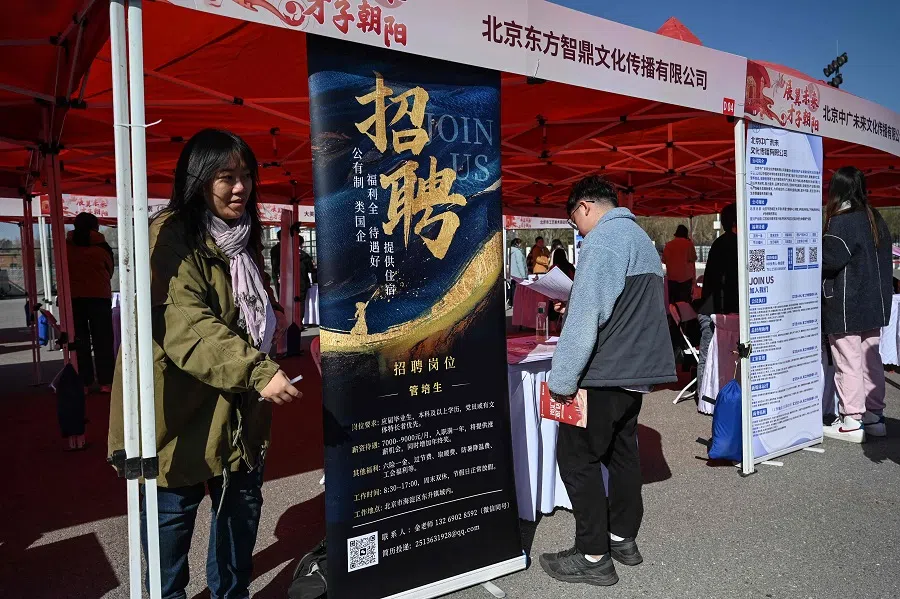
This year, the number of college graduates for China hit a record high of 11.79 million graduates, an increase of 210,000 from the previous year and double the figure from 2008. The still-sluggish employment market, coupled with the continually expanding number of graduates, meant that the problem of supply not meeting demand for job opportunities would be further compounded.
Civil service exam takers rising
During the pandemic, many students saw graduate studies as a safe harbour, but the persistently dire straits for both the economy and the employment market in the post-pandemic period meant that this harbour could no longer shield graduates from the storm.
Judging by the decline in the number of applicants for graduate studies recruitment examinations announced last year, it is likely that many graduates are now cognisant of this point.
Official statistics released in December 2023 showed that the number of graduate school applicants in China fell for the first time in three years, at 4.38 million applicants, down by 360,000 from the previous year.
During the pandemic, many fresh graduates chose to further their studies in an attempt to delay employment and enter the workforce after the pandemic - they believed that once the pandemic was over, the employment market would revive and they would then have much better employment opportunities.
From 2021 to 2023, the number of applicants for examinations to take up graduate studies rose sharply, from 3.77 million to 4.74 million. Indeed, the decline since then highlights that the graduate studies craze brought on by the pandemic is now over.
... the rising wave of applications for the civil service examination, which also intensified during the pandemic period, did not cool off after the pandemic.
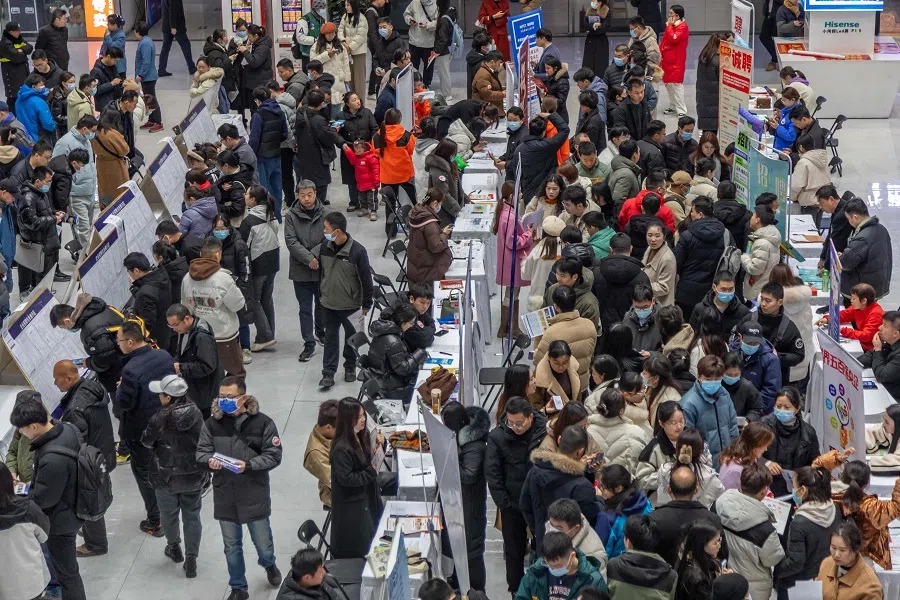
However, the rising wave of applications for the civil service examination, which also intensified during the pandemic period, did not cool off after the pandemic.
Official data from November 2023 showed that the number of applicants for China's national civil service examinations broke the 3 million mark, with an average of 77 people fighting for one spot. For the top ten positions where competition is even more intense, the ratio surpassed 1,700 to 1.
The youth unemployment rate remains high, and in the past few years, Chinese government organisations have stepped up on hiring graduates. In 2024, the national intake of civil servants hit 39,600, an increase of 6.7% from 2023 and over 60% compared with five years ago.
Private sector even more dire
Even as there are no signs of easing for the trend of expanded recruitment of graduates by Chinese government organisations, the tough employment situation within the government structure has become increasingly apparent.
In March 2023, the Chinese Communist Party Central Committee and the Chinese State Council issued the Party and State Institutional Reform Plan, which clearly stated that the central party and state institutions will reduce their staff by 5%; the government work report this year also mentioned that "governments at every level must get used to keeping their belts tightened", a reflection of the establishment's dire financial straits. Indeed, the various civil servants from all areas employed by the civil service are the first impacted group.
Graduates are having a more difficult time in finding either more favourable employment opportunities in the private sector compared with the civil service, or jobs that match their skills in the private sector.
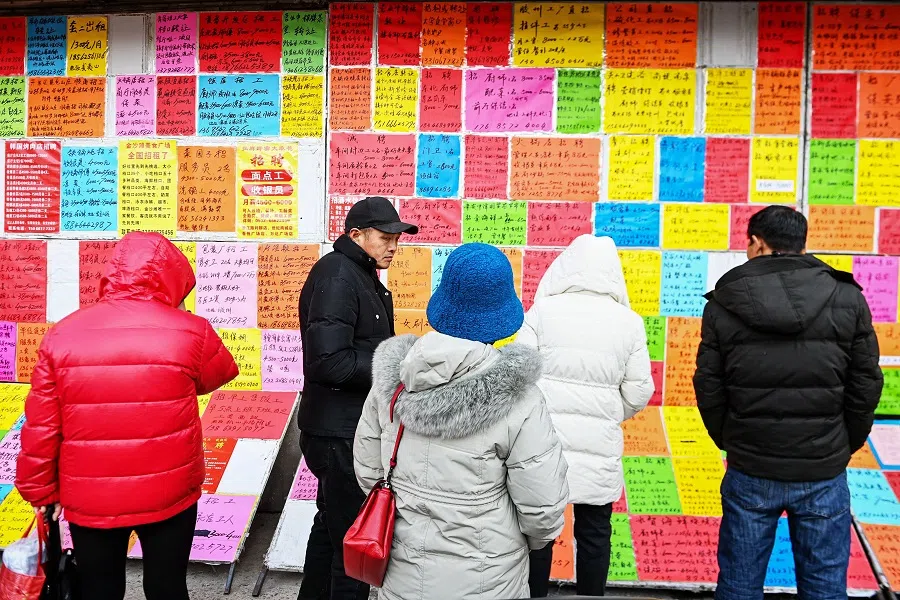
Starting from last year, there have been various reports claiming that civil servants from many areas have had their salaries cut by 10% to 25%. News of many local governments downsizing have also circulated online, triggering discussions that there is "no more iron rice bowl" for civil servants.
The employment prospects for civil service do not look bright: so why is the number of people taking civil service examinations not only not reducing - as is the case for those taking examinations for postgraduate studies - but instead keep rising?
This could mean that the employment situation for private firms could be even worse than for government organisations. Graduates are having a more difficult time in finding either more favourable employment opportunities in the private sector compared with the civil service, or jobs that match their skills in the private sector.
Even if a graduate is successful in clinching a job in a private company, they might have to deal with a tough "996 culture" working overtime while facing the risk of a salary cut or being retrenched amid an uncertain economic environment.
Dearth of options
Private enterprises are the main force of China's employment market, providing more than 80% of urban jobs. Private firms are much more sensitive to the market and respond quicker; once they are faced with operational difficulties or sense a whiff of danger, they would react at the first instance to control costs and cut jobs or salary and benefits.
The national unemployment rate can broadly reflect the general employment situation of the private sector, which is the main source of demand for employment - and national youth employment figures do not look rosy. Even after adjusting the statistical method, in February this year, the unemployment rate for China's youths aged 16 to 24 excluding students is still at 15.3%, a rise of 0.7 percentage points compared with January.
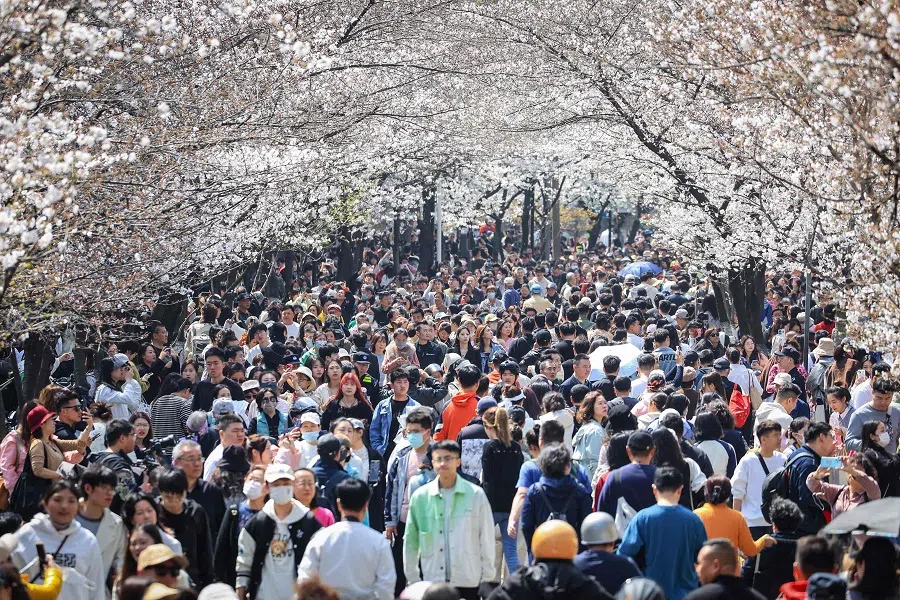
Finding a job in the private sector is but the first hurdle. Even if a graduate is successful in clinching a job in a private company, they might have to deal with a tough "996 culture" working overtime while facing the risk of a salary cut or being retrenched amid an uncertain economic environment. Thus, being a civil servant is a more attractive employment option for many graduates.
Many proposals from tertiary institutions place the focus on the freedom of choice for graduates, but the excessive number of examinees for the civil service, as well as the problems stemming from the structural conflict in supply and demand in the job market, would not be changed simply by relying on open letters from a couple of schools, nor should the blame be placed on the freedom of choice for graduates.
For some, it is simply the reality of a situation for them to choose the route that offers bleak chances of success - this is an option in the face of a dearth of options.
This article was first published in Lianhe Zaobao as "考研考公以外的选择".





